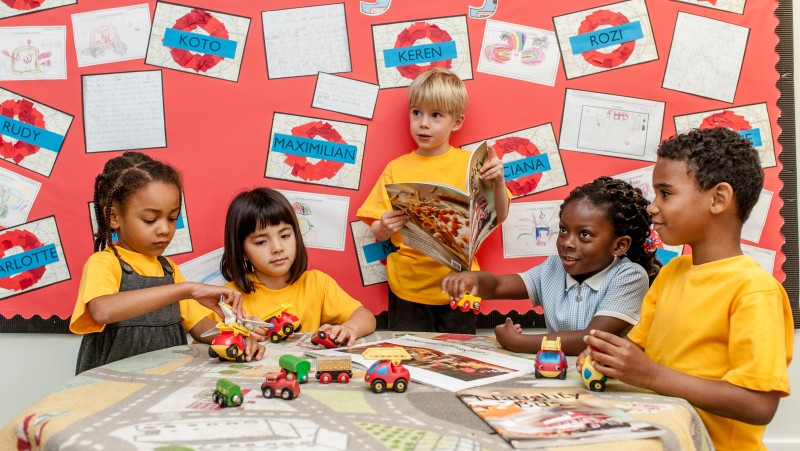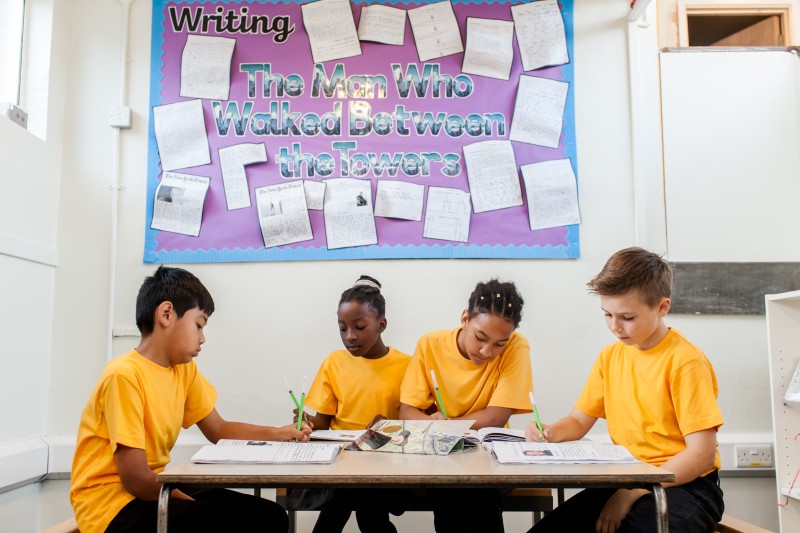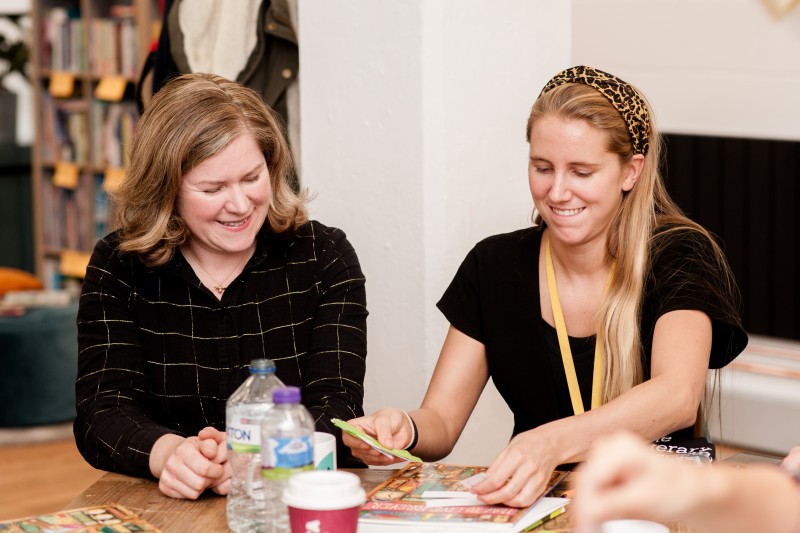Posted on: 17/05/2022
We are often asked how to support children to be independent writers, especially as moderation and end-of-year assessments loom. The concept of supporting children towards independence could sound like a contradiction-in-terms, but it is a concept that underpins all our Planning Sequences and our Teach Through a Text pedagogy. We know children write at their best when they are immersed in rich contexts and given purposeful opportunities to express themselves. The best writers submerge themselves in literary worlds and surround themselves in rich vocabulary. Writing cannot happen by itself and we know that pulling the rug from underneath children too quickly won’t engender independent, engaged writers. Of course we want children to write without being over-supported, but what does this really mean in the context of writing and how can we set up our classrooms to ensure we are engendering independence without turning the temperature down on context?

For us, the writing process is about structuring and scaffolding children to write within and about a world they are familiar with. This might be based on a real, lived-experience or constructed from a fictional world that they’ve been exposed to. Either way, context is king, and we want children to engage in a range of short, longer and more extended published outcomes that are meaningful for them and have a sense of tangibility. Unseen tasks, and other sorts of writing opportunities that deliberately place children in situations of unfamiliarity and worlds that are weird to them, by their very nature don’t give children the access to the tools they need to write at their best. We would always advocate for using drama as a tool to immerse and literature as a way of unlocking the door to a range of as-yet unlived experiences and the best way to give children access to a language-rich environment.

But how do we get them from immersion to the point of writing? This might include supporting children with vocabulary (always urging them to engage with language, making decisions about what to include) which will ensure the tier two and three vocabulary is evoked for their writing; shared writing (which could include pedagogies of modelling, supported writing or scribing) will guide children towards the structure and form needed in their outcomes as well as appropriate levels of formality and register; scaffolds and success criteria will also do this, prompting children to include aspects of grammar and composition in their work and we can’t assume this can be done ‘cold’. Of course, within these outcomes, we know that children will work with greater and lesser degrees of independence and that’s okay as long as we are aware of what’s been offered. We could think of independent as a spectrum, a journey towards autonomy that children will need to be guided through and where children could be at any position at a given point in time. Independence is not a pair of stabilisers to be suddenly and without warning taken off the bicycle for children to ride freely but rather a pair of hands guiding and steadying us as we learn the craft of writing, there to balance us if we wobble and possibly even give us a little push if we run out of steam!

When we work with schools around assessment, we always look at the child as a whole and make sure we support work from across the entire curriculum knowing that the times they will feel most confidence to show off what they can do (and still within solid contexts) might be that science lesson where they a biography of Marie Curie, or the History session where they create letters in role as an evacuee without even thinking that they’ve been supported slightly less than they may have been had it been taught in the context of an English objective.

So how do we differentiate between independence and support in a moderation or assessment scenario? Our entire team of consultants are trained KS1and 2 moderators and run these for a local authorities. When we’re leading such sessions, the message we always give out is that just because something might not be independent in its purest form, it doesn’t negate the entire piece of writing. If shared writing has taken place, this may only have informed the first two/three sentences of a story spanning several pages so, we’ll read the composition and assess it with that in mind. If they’ve had some vocabulary shared with them directly prior to a task, assess them on the language that they’ve chosen of their own volition. If they’ve had some success criteria to shape their writing, look at the aspects that they have chosen to include that weren’t in the list of criteria. Overall, regardless of the physical tools that are offered to children during any piece of writing, ensure that they have been immersed in a world, whether fictional or real, that allows them to access and harness the skills they have to write creatively and with a sense of purpose. Through this, children will continue to move along the spectrum of support and will become increasingly independent writers.
Posted in: Curriculum | Home Learning